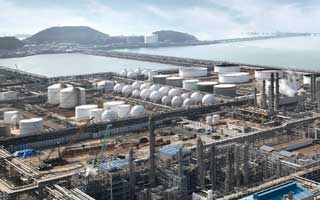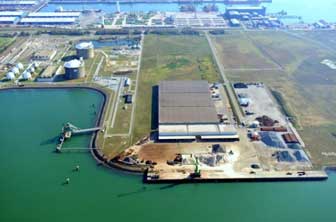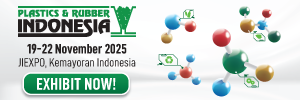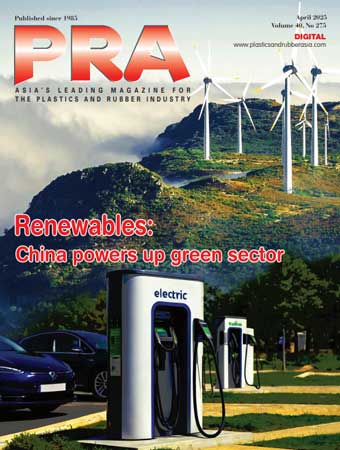Green news: LG Chem/Enilive break ground on South Korea’s first HVO/SAF plant; Neste/Ravago shelve plans for pyrolysis plant in Netherlands

LG-Eni BioRefining Co Ltd, a joint venture of Italy’s Eni subsidiary Enilive (49%) and South Korea’s LG Chem Ltd (51%), has started construction of the partners’ proposed grassroots biorefinery at LG Chem’s Daesan integrated petrochemical complex in Seosan, Chungcheongnam-do Province, South Korea.
The companies say they have taken a major step toward biofuels growth by breaking ground on South Korea’s first hydrotreated vegetable oil (HVO) and Sustainable Aviation Fuel (SAF) production plant. Scheduled for completion in 2027, it will produce 400,000 tonnes of renewable bio-feedstock.
Demand for HVO and SAF is expected to surge driven by renewable fuel mandates. The partners confirmed the new plant will specifically use a feedstock of sustainable vegetable oils such as used cooking oils, among other unidentified bio-based waste and residues, through Ecofining, a technology developed by Eni in collaboration with Honeywell UOP.
“The Seosan biorefinery breaking ground reaffirms Enilive’s strategy in offering increasingly sustainable products and our company’s position as a leader in biofuels production” said Stefano Ballista, Enilive’s CEO. “Together with the plants that are already operational in Italy and in the US, and with new biorefining plants under construction in Italy and Malaysia, the upcoming biorefining plant in Daesan will contribute to reach our 2030 target to increase our biorefining capacity to over 5 million tonnes/year, with the potential to produce more than 2 million tonnes/year of SAF”.
By integrating HVO into its supply chain, LG Chem says it plans to reduce carbon emissions and expand its portfolio of ISCC PLUS-certified bio-circular balanced (BCB) products. Target applications include Acrylonitrile Butadiene Styrene (ABS) for electronics and automobiles, Ethylene-Vinyl Acetate (EVA) for sporting goods, and Super Absorbent Polymers (SAP) for hygiene products.
Eni also has partnered with Malaysian oil/gas firm Petroliam Nasional Berhad’s (Petronas) Petronas Mobility Lestari Sdn Bhd. (PMLSB) and Euglena Co Ltd of Japan for a jointly held grassroots biorefinery to be built in the mega Pengerang Integrated Complex (PIC) at Johor in southern Peninsular Malaysia. This biorefinery will be equipped to flexibly process about 650,000 tonnes/year of waste and residue biofeedstocks, including vegetable oils, animal fats, and waste from the processing of vegetable oils, into SAF and HVO by second-half 2028.
Meanwhile, in other news, Finland’s chemical recycler Neste and Belgian materials supplier Ravago have decided not to go ahead with plans for a pyrolysis plant in Vlissingen, Netherlands. First announced in 2021, the plant would have processed around 55,000 tonnes/year of mixed plastic waste, with US firm Alterra Energy to have provided the pyrolysis technology.

Alterra Energy develops thermochemical liquefaction process technology and both Neste and Ravago are minority investors in the company.
The planned plant in the North Sea Port ofVlissingen was to have been a demo/pilot plant, with the intention to launch chemical recycling on a commercial scale later.
Ravago, which claims to be the world's largest distributor and recycler of polymers, would handle the mechanical pretreatment of the waste. Neste would then process the liquid output in its own refineries.
Ultimately, the partners had aimed to scale up their global processing capacity to over 200,000 tonnes/year of plastic waste by 2030.
(PRA)SUBSCRIBE to Get the Latest Updates from PRA Click Here»












